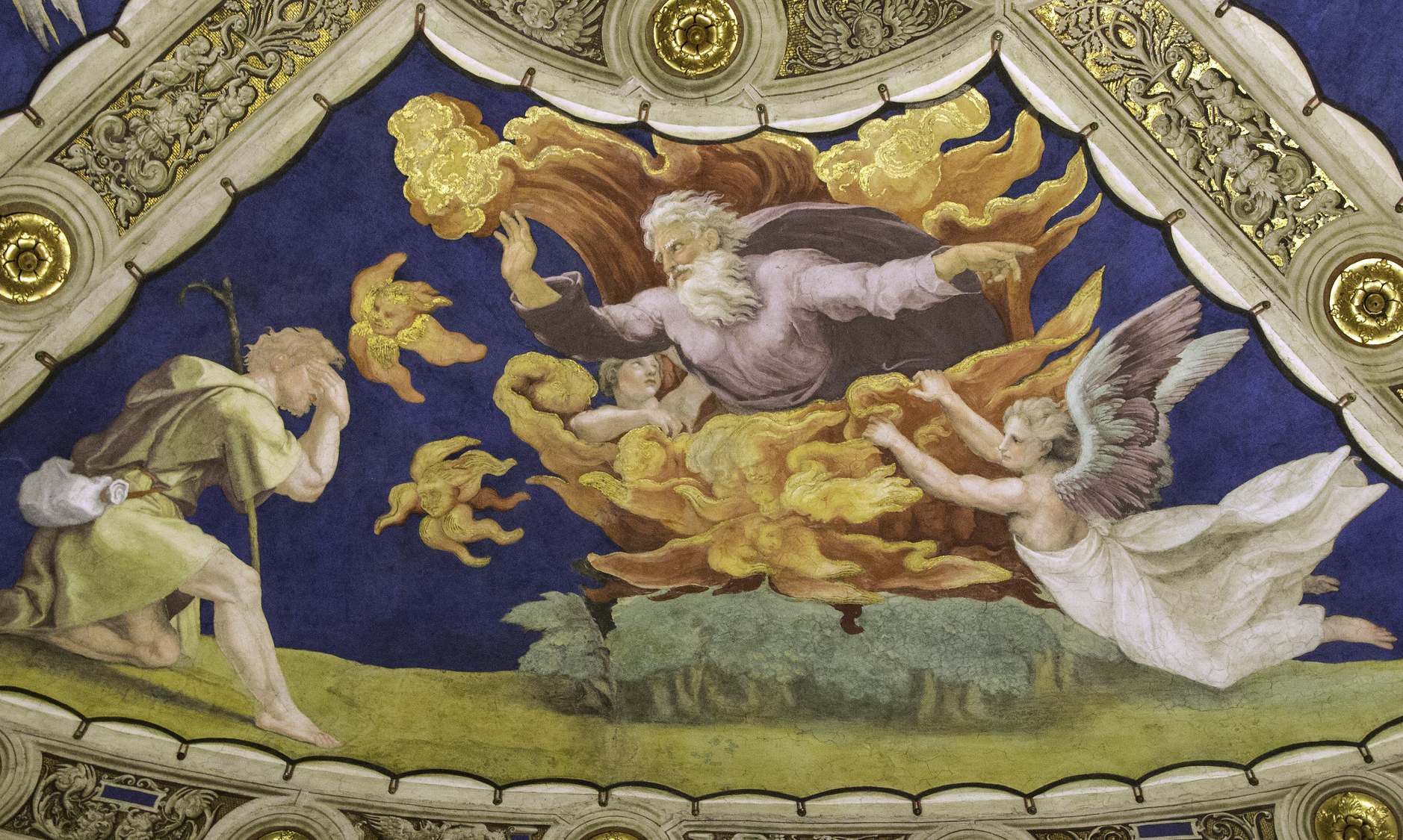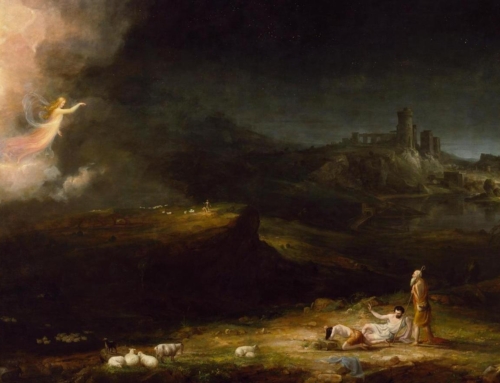Our first reading for Mass today begins with God’s words, which are addressed to the prophet Isaiah. “Comfort, give comfort to my people, says your God” (Is 40:1). This by itself is something amazing. Why does Israel need comfort? What kind of comfort is being promised? Isaiah is told, “speak tenderly to Jerusalem, and proclaim to her, that her service is at an end, her guilt is expiated” (Is 40:2a). Why indeed does Israel need comfort? The people of God have suffered for their past sins and infidelities. They have been far away from the Lord, though he has not been far from them. They have lived as strangers in a strange land (Ex 2:22), without any comfort but the promise of divine fidelity. And God is always faithful to his promises. Still, what is being promised here? How is the Lord going to bring an end to the sufferings of his people?
A voice cries out: In the desert prepare the way of the Lord! Make straight in the wasteland a highway for our God! Every valley shall be filled in, every mountain and hill shall be made low; the rugged land shall be a plain, the rough country, a broad valley. (Is 40:3-4)
What is the comfort promised to Israel? God is coming to dwell with them, and his glory shall be revealed before them and the whole world. In the desert of our exile, in the wasteland of this world of sin, God is coming to free his people. The voice crying out in this verse prophetically points to John the Baptist, but it also refers to any prophet or any soul trying to prepare the way of the Lord.
God speaks to us in Divine Revelation, but unless we have ears to hear, unless we are prepared to listen to what is said, his word will not become effective within us. We must prepare a place in our hearts to receive his word. Hospitality is a virtue, and preparing a home for God is a striking task. The coming of God is not something tame or tidy. Nothing will ever be the same, for new wine must be poured into new wineskins.
In the reading, Isaiah wrestles with this reality. He compares the standards of earthly glory with the glory of the God of hosts. As he puts it, the word of God stands forever, while worldly glory withers like a wildflower. This can seem frightening, but it is good news for a people who are ready and set apart as God’s people. Israel is a nation marked by a unique understanding of itself; by the gratuity of divine love, they have been chosen as a people set apart, a nation of priests before the Lord of all the earth. This vocation makes them who they are, and makes this promised advent of God the greatest possible comfort, the most outstanding “good news” imaginable. “Fear not to cry out and say to the cities of Judah: Here is your God!” (Is 40:9).
The coming of the Lord is not a secret event, for prophets like Isaiah and John the Baptist shout like madmen from the tops of the mountains. It is not an ineffectual event, for the Lord God rules with power, “his reward is with him, and his recompense [is] before him” (Is 40:10). His strength is not without mercy or gentleness, and his dominion is not like that of an aloof emperor. “Like a shepherd he feeds his flock; in his arms he gathers the lambs, Carrying them in his bosom, and leading the ewes with care” (Is 40:11). The strength of the God of Jacob is the strength of the Good Shepherd, and he holds his sheep up to his bosom so that they can be near his heart. This is surely the kind of love discovered by Zachariah when he exclaimed, “In the tender compassion of our God, the dawn from on high shall break upon us, to shine on those who dwell in darkness and the shadow of death, and to guide our feet into the way of peace” (Lk 1:78-79).
✠
Photo by Fr. Lawrence Lew, O.P. (used with permission)







